THE COLOR PURPLE (2023)
A black woman faces many hardships in her life, but ultimately finds extraordinary strength and hope in the unbreakable bonds of sisterhood.
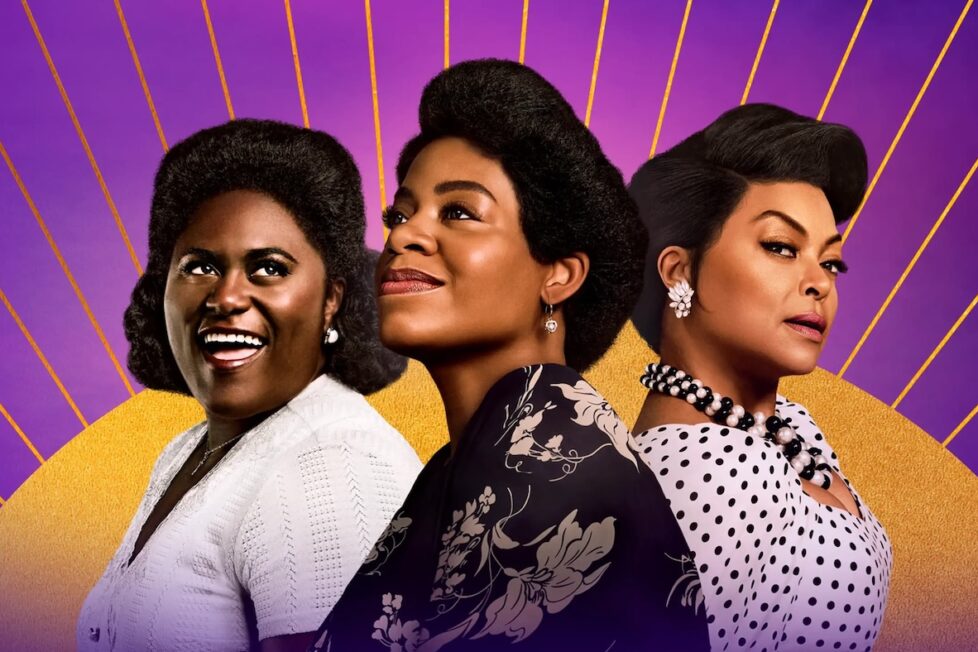
A black woman faces many hardships in her life, but ultimately finds extraordinary strength and hope in the unbreakable bonds of sisterhood.


Drawing inspiration from the sum of its three predecessors, the Broadway musical The Color Purple hits the big screen as a familiar, yet poignant, adaptation of Alice Walker’s 1982 novel. The musical itself features music and lyrics by Brenda Russell, Allee Willis, and Stephen Bray, and a book by Marsha Norman, while Steven Spielberg’s 1985 film adaptation lends further inspiration.
Directed by Blitz Bazawule and written by Marcus Gardley, The Color Purple tells the story of Celie (Fantasia Barrino), a Black woman living in Georgia during the first half of the 20th-century. Celie endures immense hardships, including losing her two children, Adam and Olivia—conceived through her father’s rape—and being forced into marriage with the abusive Mister (Colman Domingo). She also loses contact with her beloved sister, Nettie (Halle Bailey). Over decades, Celie finds strength, love, and sisterhood in unexpected places: in the talented singer Shug Avery (Taraji P. Henson) and the fiercely independent Sofia (Danielle Brooks). The result is a moving adaptation, with its grand songs, vibrant costumes, and tender portrayal of sisterhood, that breathes new life into a story that has captivated audiences for over 40 years.
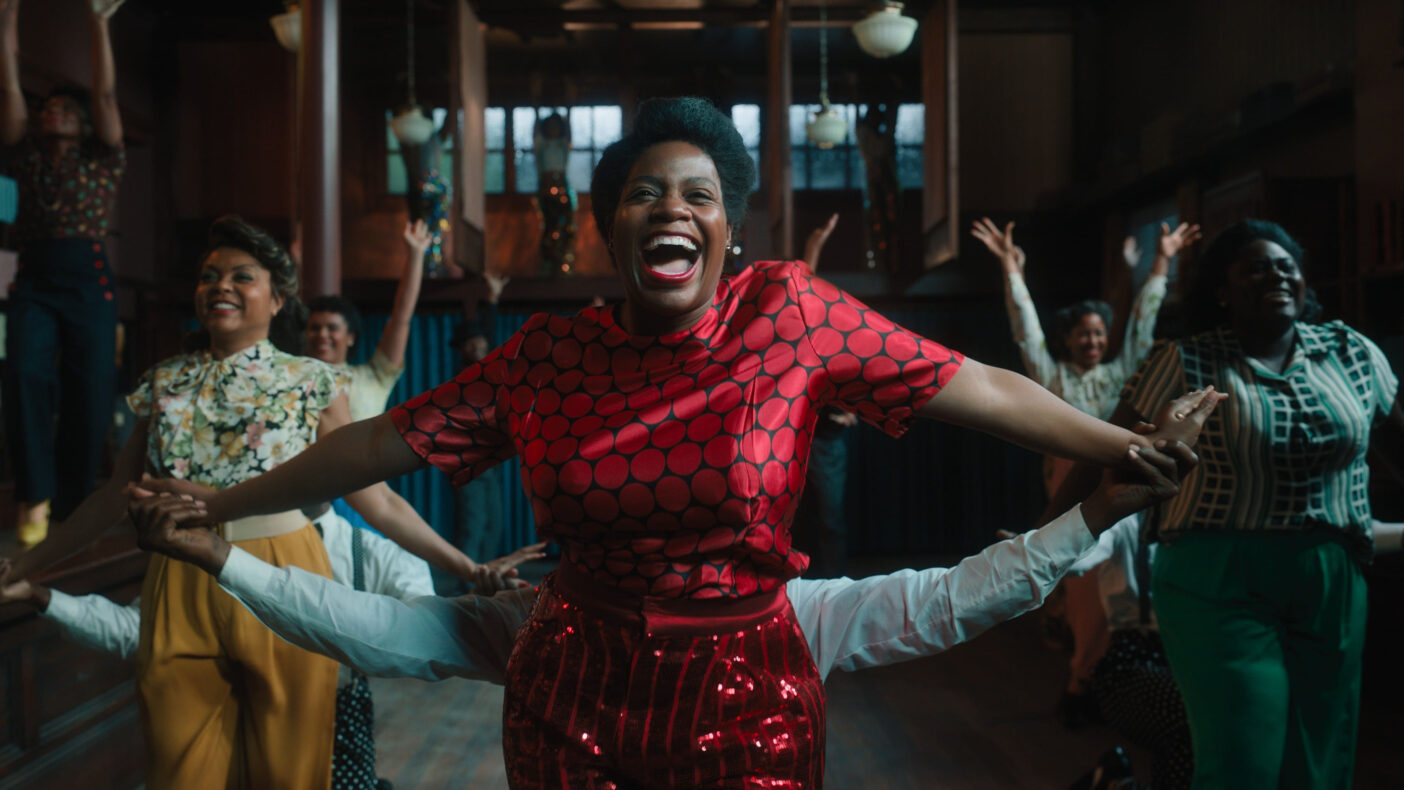
Amidst the recent wave of Broadway-to-screen adaptations, including Dear Evan Hansen (2021), The Prom (2020), and Mean Girls (2024), The Color Purple shines brightly as one of the very best. Translating a musical’s flamboyant sets and intricate choreography to the cinematic format isn’t always smooth sailing, but Bazawule’s film largely rises to the challenge. The dance sequences are masterfully staged, and the sets effectively transport us into Celie’s compelling world.
Upon its theatre 2005 debut, The Color Purple garnered mixed reviews, with critics citing the lengthy runtime and thinned-down subject matter as problematic. While corrections were made in the 2015 revival, some of these issues still linger in the film’s adaptation.
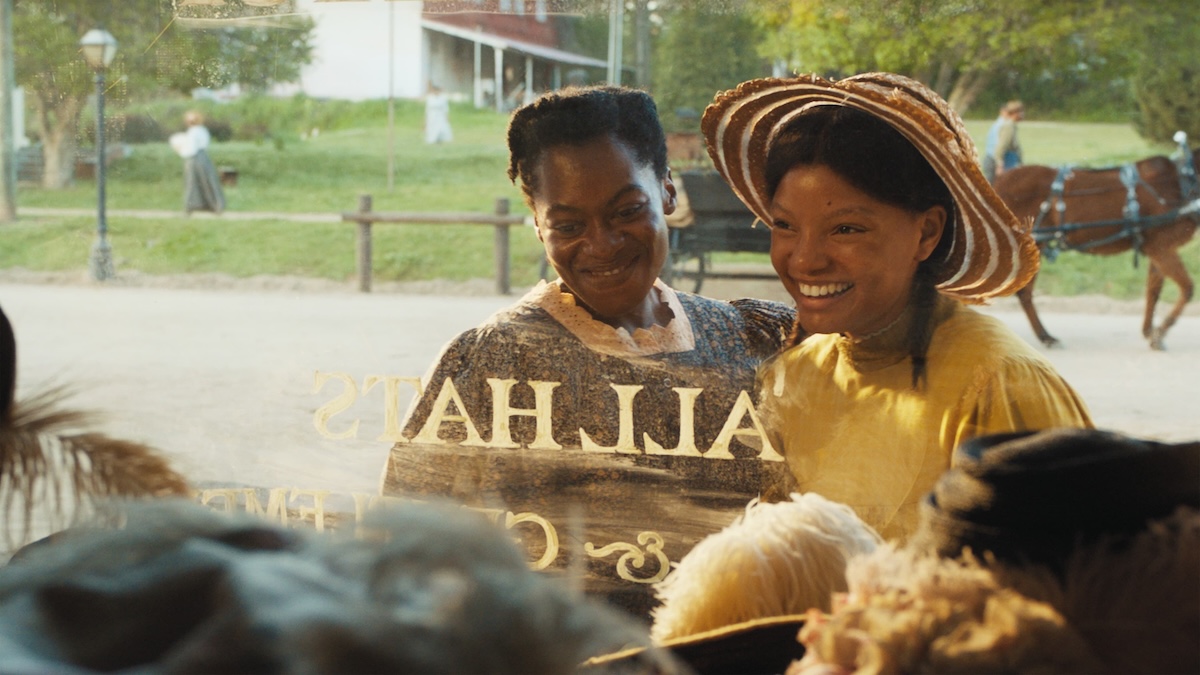
Clocking in at 141 minutes, The Color Purple movie narrowly navigates its extended runtime by sacrificing key songs and implementing alternative plot advancement methods. However, this absence leaves devoted fans of the musical, particularly those attached to powerful numbers like “Too Beautiful For Words,” feeling disappointed. Despite omitting songs, the film’s pacing still occasionally feels rushed, abruptly abandoning emotional moments to leap years into the future, forcing audiences to fill in the blanks. Similarly, the exploration of Celie’s love story and sexuality, crucial to her character development, is reduced to bare bones. While the narrative’s flow remains logical, the omission of key moments from both the musical and the original story—such as Sofia’s service as a maid and Nettie’s time in Africa—creates jarring discontinuities.
Blitz Bazawule, armed with his prowess in directing music videos, adeptly directs the action. He grants the characters ample screen space to showcase their stunning beauty and vocal power, a talent he previously displayed in Beyoncé’s visual album Black is King (2020). While the film boasts grand sets and bright lighting, a consistent visual strength is lacking. At times, the outdoor musical numbers feel excessively empty around the characters, framing them as diminutive figures amidst the vast Georgian coastline. The lighting, though thematically fitting, suffers from overexposure during moments of heightened emotion, becoming tiresome to the eye. The few instances of VFX imagery also fail to match the singers’ vocal brilliance in terms of visual quality. Though the film’s visuals could have benefited from more focused direction, Bazawule still excels in guiding the actors’ performances on screen.
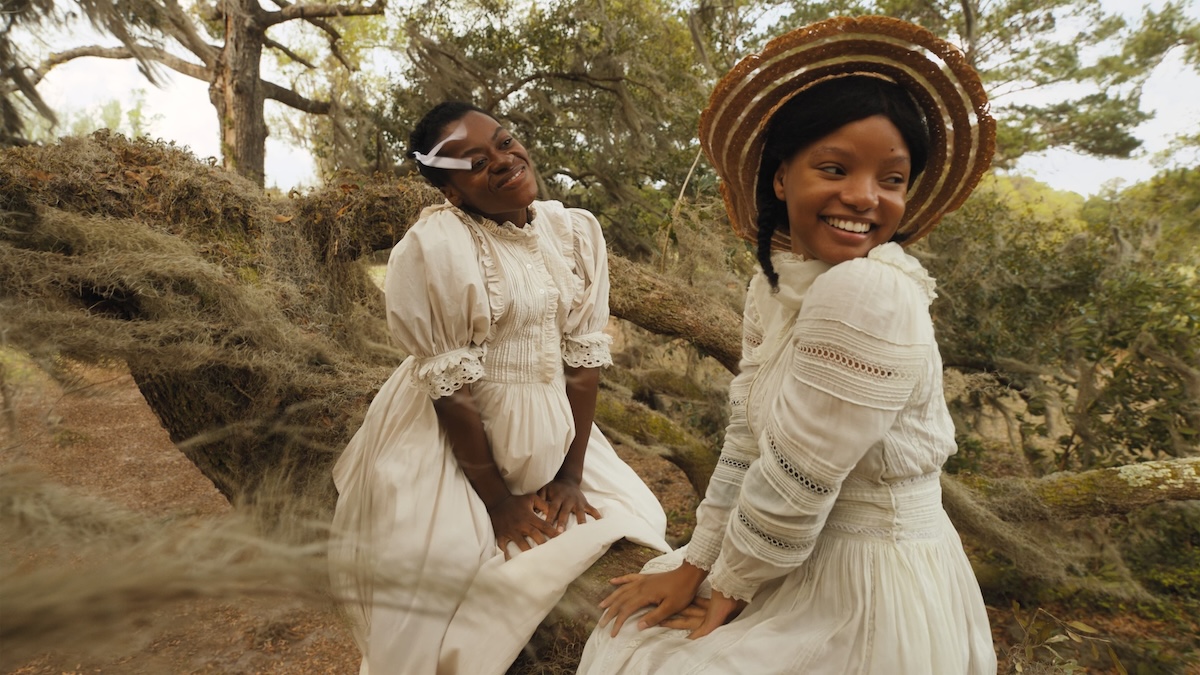
Alice Walker’s original novel imbued Celie’s story with searing pain and horrors, as well as joy and love. Adapting this complex material for a musical presents a unique challenge. While the inherent buoyancy of the genre amplifies the story’s joyous moments, it can struggle to fully convey the brutal realities Celie endures.
On film, the frequent depiction of Black suffering can be a wearying viewing experience. Bazawule compassionately chooses to avoid explicit portrayals of the brutal rape, violence, and racism woven into the narrative. This doesn’t diminish the emotional impact these events have on the characters, however. That credit belongs to the film’s standout cast, whose performances make this adaptation truly worth watching.
Stepping into the iconic shoes of Celie, brought to life on West End and Broadway by Cynthia Erivo (and famously portrayed by Whoopi Goldberg in the 1985 film—who has a delightful cameo here), American Idol winner Fantasia Barrino delivers a commanding performance. From her hopeful and loving youthful days (beautifully captured by the equally talented Phylicia Pearl Mpasi), Celie bursts with devotion for her children she never met and the sister eternally by her side. Every song she belts explodes with power, and Fantasia’s voice resonates perfectly with this resilient character. Not a single moment feels wasted as her story unfolds.
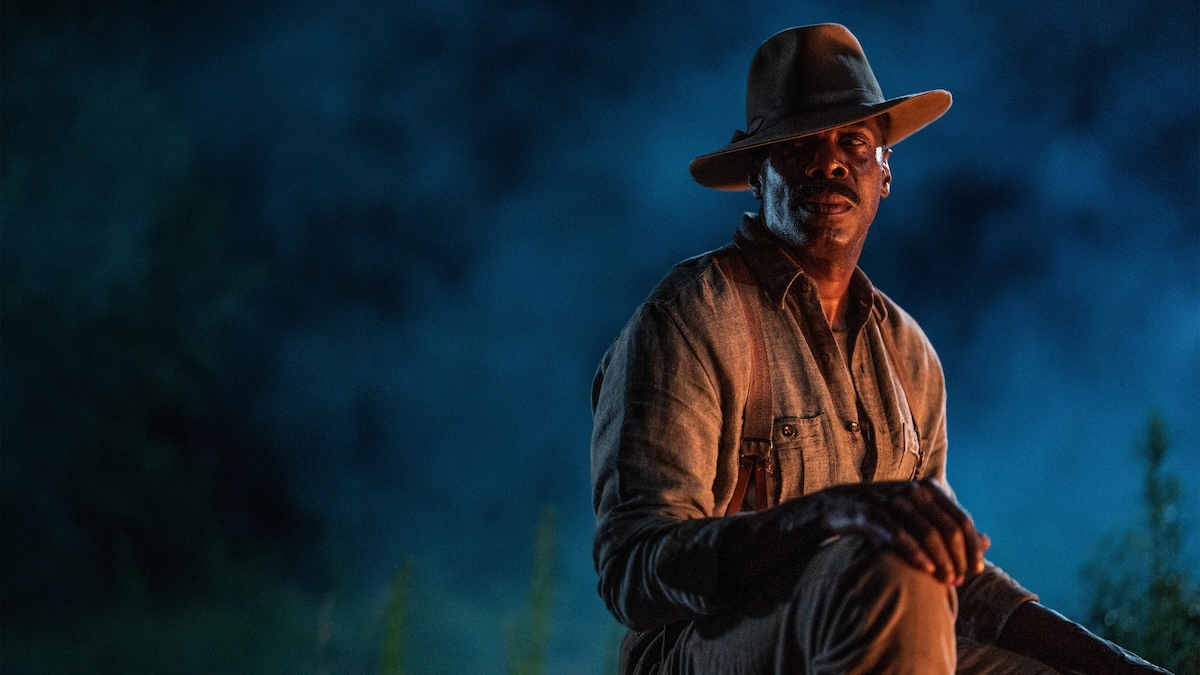
Danielle Brooks triumphantly returns to this story, reprising the character of Sofia, whom she originally played in the 2015 Broadway revival. In an Academy Award-worthy performance, Brooks imbues each moment with both infectious laughter and unwavering strength. One of the film’s most poignant scenes occurs after Sofia, having endured a lengthy prison sentence and time as a maid to the unkind wife of a corrupt mayor (Elizabeth Marvel), finally reclaims her voice. It’s in the act of laughing at the men who have wronged Celie throughout her life that Sofia rediscovers her spirit and defiance.
Taraji P. Henson radiates brilliance as Shug Avery, the woman who ignites Celie’s smile and love. With stunning beauty and captivating warmth, she fills the screen with her mesmerising presence. An Oscar nominee already, Henson demonstrates her versatility as both a singer and a nuanced character actor in this film. Although Celie’s perspective frames the story, Shug Avery also has her own moment of personal reflection with her preacher father.
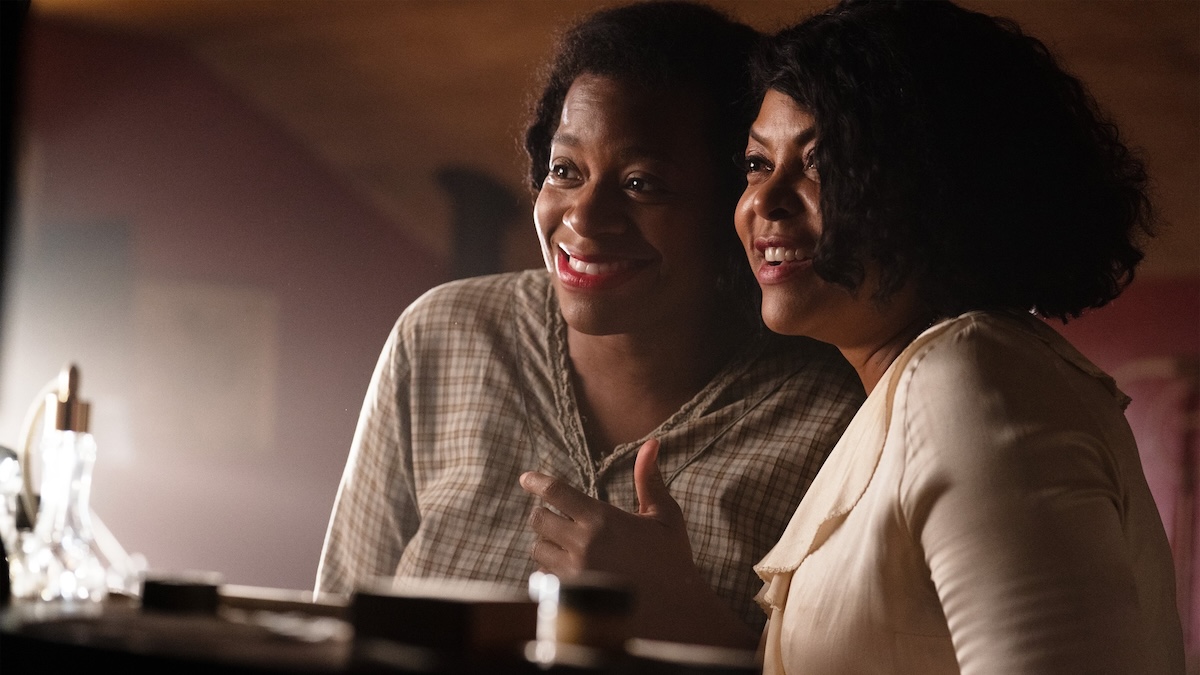
Supporting the three phenomenal lead actresses is a stellar ensemble of accomplished Hollywood actors and movie musical stars. The expert casting by Tiffany Little Canfield, Destiny Lilly, and Bernard Telsey deserves recognition. Colman Domingo delivers a nuanced performance as Celie’s abusive husband, being equally terrifying and heartbreaking. Halle Bailey (The Little Mermaid), though playing a smaller role at the film’s start, establishes the emotional core of the narrative. Corey Hawkins portrays Harpo, Mister’s son, with depth and sensitivity, despite the omission of some of his songs from the Broadway musical. Even in brief appearances, singers Ciara and H.E.R. add remarkable depth to their characters. The acting is consistently superb, with no weak performances to be found. While the adaptation may miss some elements that unified the original story of human connection, the cast pours their heart and soul into every scene.
Since the ’80s, Walker’s groundbreaking novel has transcended time, now engrossing audiences across nearly every medium in popular culture. From the original book to the film, the movie-turned-musical, and now the latest film musical, fans have countless ways to experience the story. How they prefer it is a matter of personal taste, and each iteration inevitably invites comparisons with the others, as is true of all adaptations. Does this film shy away from the novel’s darkest moments? Is Celie’s character presented as an overly archetypal strong woman? Are the visual portrayals of divine power too blatant? These conversations are crucial in evaluating how the adaptation fares in comparison to Walker’s original work. However, even with its flaws, Bazawule’s The Color Purple is a beautifully acted film that deserves to be appreciated on its own merits, alongside the other versions.
USA | 2023 | 141 MINUTES | 1.85:1 | COLOUR | ENGLISH

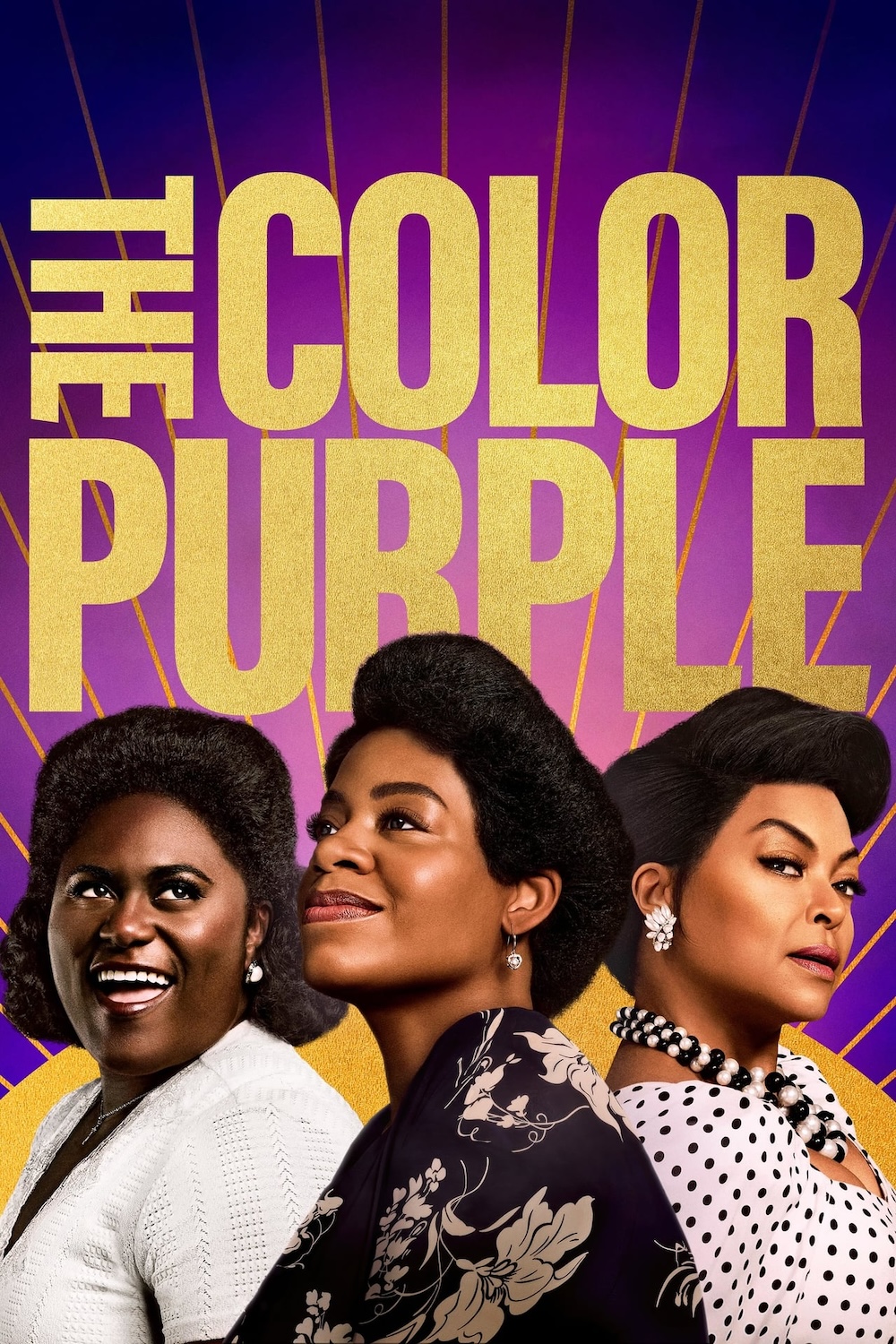
director: Blitz Bazawule.
writer: Marcus Gardley (based on ‘The Color Purple’ musical by Brenda Russell, Allee Willis, Stephen Bray & Marsha Norman, and the novel by Alice Walker).
starring: Taraji P. Henson, Danielle Brooks, Colman Domingo, Corey Hawkins, H.E.R, Halle Bailey, Phylicia Pearl Mpasi & Fantasia Barrino.
